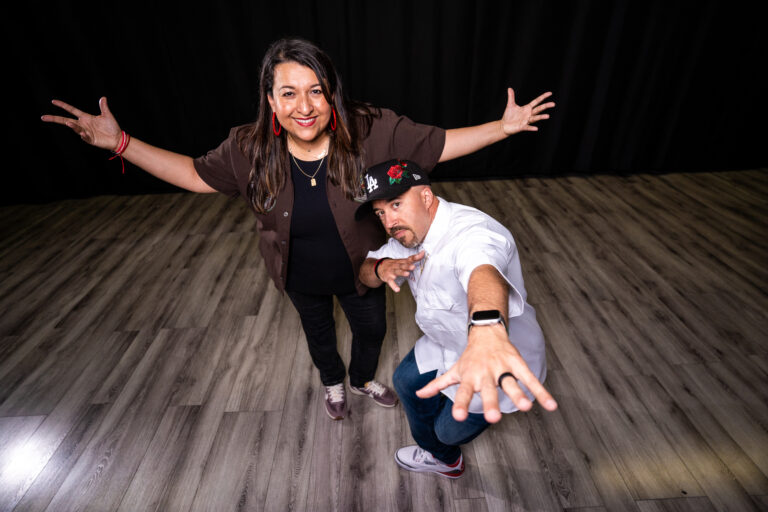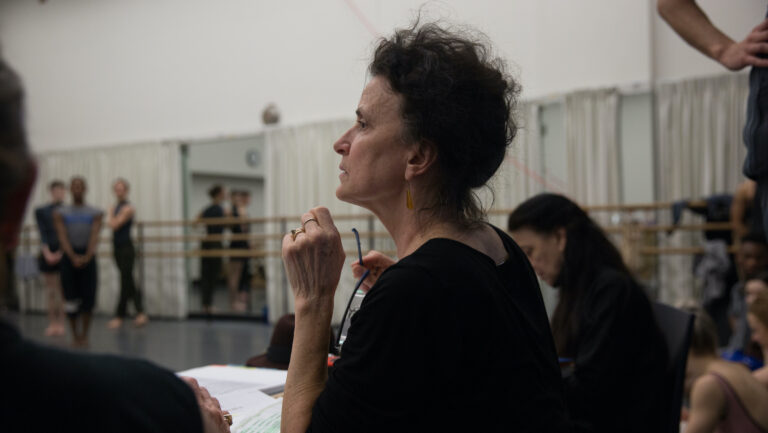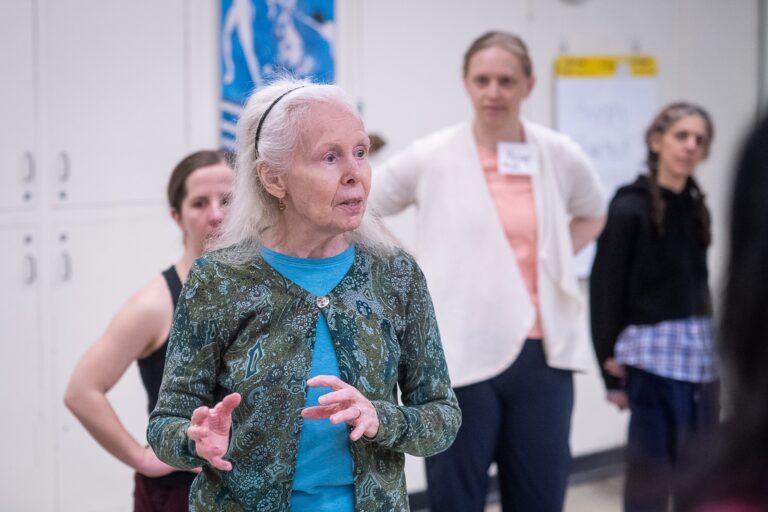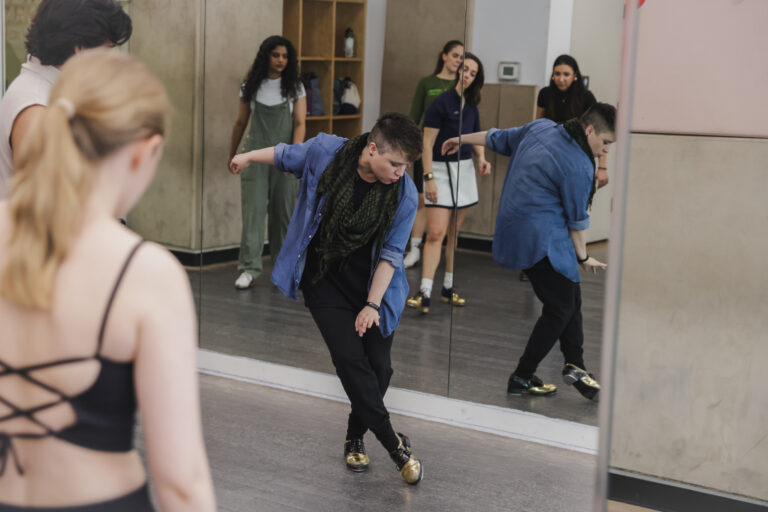
Even as a first-grader, Doug Risner knew he wanted to teach. “I would invite my neighborhood friends to my house and play school, and I was always the teacher,” he says. He’s been an educator in many forms throughout his long teaching career: first as a teacher of varied dance genres in Pittsburgh, followed by 36 years in higher education at Luther College in Iowa, The University of North Carolina at Greensboro—where he earned his BFA and later his PhD—and most recently at Wayne State University in Michigan, where he became full professor in 2011and served as department chair for five years. But it’s his current role, as the co-founder and director of the master’s degree in dance and theater teaching artistry at WSU, that perhaps offers Risner the best synthesis of his research and teaching philosophy: the pedagogue as artist.
“There’s an opinion that dance teachers exist either because they retired from a professional career or they weren’t successful as professionals—that you fall into teaching, you don’t pursue it,” says Hannah Box, a current student of Risner’s at Wayne State. “The research Dr. Risner did to create the MA program was entirely to combat that idea: to find the people who pursue pedagogy as a form of artistry.”

The MA program operates uniquely, as it was built with working teaching artists in mind, based on an extensive three-year research study. Students can opt to participate in the two-year, part-time program (with an additional semester for students to complete their Master’s Essay requirement) entirely virtually or else in a hybrid format, with required courses online and in-person electives. For Risner, the MA program has been an opportunity to evaluate how principles of his teaching philosophy—providing students the tools they need while still giving them room for discovery, for example—evolve in the online space. “I’ve learned a tremendous amount about how you establish a community of learners,” he says. “It’s this idea of the social construction of knowledge—that we can’t even learn anything by ourselves. We learn through and with others.”
That kind of reflexive adaptation is typical for Risner, a man who is constantly gauging and calibrating his own pedagogical practices, despite his storied teaching career. He’s keenly aware of generational shifts in what students need most—“What worked 10 years ago may not work as well today,” he admits frankly—and tries to give his own teaching practice the same scrutiny he offers his teaching-artist students. “What does it mean to be responsible for someone else’s learning? And what kind of teacher do I want to become? These are questions that I ask myself every day,” he says. “We have to confront the notion that we will teach exactly the way we were taught unless we carefully examine what didn’t work, what wasn’t humane and what wasn’t centered on the learner’s experience.”
An important part of that pedagogical puzzle takes shape as research. Risner has published six books and over 200 journal articles, chapters and conference papers, with two more books due in 2021 and 2022. A good deal of his research investigates the intersections of gender and dance, with particular attention paid to adolescent male students. “We’ve had really good discussions about removing gendered practices from children’s dance programs,” says Box. “The biggest thing that struck me recently is his pointing out that marketing ballet to boys and young men as feats of athleticism—that it’s manly, that you get to lift all the girls—is just as problematic as saying boys shouldn’t do ballet. We need to respect that people of all gender identities are drawn to dance for similar reasons, and there’s nothing wrong with that.”
Though Risner’s prolific publication output might induce awe in other higher ed dance teachers, to him, it’s just a necessary outlet for what fascinates him. “If I don’t write it, who’s going to write it?” he says. “Research—and I mean scholarly work, publication, journals, articles, books—is so time-consuming and difficult, so the work has to be personally resonant.”
In the world of dance in higher ed, where assessment and evaluation are king, Risner finds himself drawn to mentorship, advising both undergraduates pursuing choreographic and research projects and fellow faculty members working toward tenure at WSU and other higher ed institutions across the U.S. “I really enjoy that kind of work,” he says. “It always begins by recognizing the person’s strengths—their own humanity and what they have to offer.”
The knowledge and generosity he brings to those relationships allows him to access a layered teaching persona, one where he can be approachable and yet have high standards for his students, says Box. It’s a difficult balance to strike, but it doesn’t go unnoticed. “You can tell he puts his money where his mouth is,” says Box. “He’s actively modeling his research of what a good teacher is.”
Register here for the 2021 Dance Teacher Awards, taking place Wednesday, October 6, at 6 pm Eastern/3 pm Pacific. Meet the rest of the honorees here.




